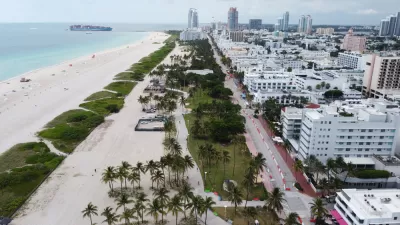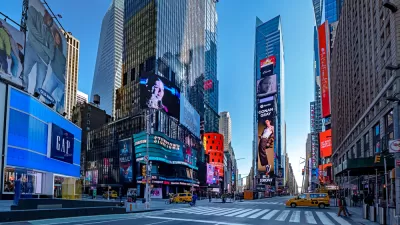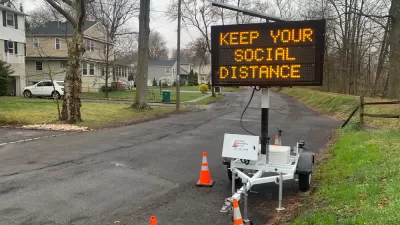The short-term environmental effects of the pandemic economic downturn are clear in the amount of carbon emissions that have been removed from the economy. The long-term effects, however, are subject to a number of contingencies.

The Rhodium Group has repackaged its annual assessment of U.S. greenhouse gas emissions to focus on the largest source of uncertainty in the current outlook for the country's emissions: COVID-19's impact on the economy.
It has been over 100 years since the US has confronted a pandemic of this magnitude, so there are few historical precedents for understanding what to expect over the coming years. There are four main components of uncertainty: 1) the epidemiological outcomes of COVID-19 and its spread; 2) how states, companies, and communities respond to the epidemiological risks through lockdowns or restrictions on activity; 3) the resulting impact to the US economy; and 4) the response of federal and state governments to shore up the economy through stimulus and recovery measures.
The report explores scenarios for the first three of those components, and promises a future report to include scenarios for the fourth.
Included in the key findings included in the report, Rhodium Group reports an 18% decline in emissions from March 15 to June 15 in 2020 compared to the previous year. "We find the potential for a persistent effect on GHG emission trends—with reductions of 6-12% this year relative to pre-COVID projections, and 2-12% by 2030, depending on the depth and duration of the crisis and the pace of recovery (a V, W, or L-shaped recovery)," reads the report.
Those emission reductions have come at tremendous cost, however, as a reflection of the economic downturn that the world is suffering as a consequence of the pandemic. "Near-term emission reductions driven by COVID-19 also come at an enormous economic cost—$3,200-5,400 per ton of CO2 reduced, on average this year," according to the report.
The report also includes information about how it's possible for clean energy and climate investments to lead the economic recovery and lower carbon emissions, without the terrible economic costs that have precipitated these trends in 2020.
FULL STORY: Taking Stock 2020: The COVID-19 Edition

Maui's Vacation Rental Debate Turns Ugly
Verbal attacks, misinformation campaigns and fistfights plague a high-stakes debate to convert thousands of vacation rentals into long-term housing.

Planetizen Federal Action Tracker
A weekly monitor of how Trump’s orders and actions are impacting planners and planning in America.

In Urban Planning, AI Prompting Could be the New Design Thinking
Creativity has long been key to great urban design. What if we see AI as our new creative partner?

King County Supportive Housing Program Offers Hope for Unhoused Residents
The county is taking a ‘Housing First’ approach that prioritizes getting people into housing, then offering wraparound supportive services.

Researchers Use AI to Get Clearer Picture of US Housing
Analysts are using artificial intelligence to supercharge their research by allowing them to comb through data faster. Though these AI tools can be error prone, they save time and housing researchers are optimistic about the future.

Making Shared Micromobility More Inclusive
Cities and shared mobility system operators can do more to include people with disabilities in planning and operations, per a new report.
Urban Design for Planners 1: Software Tools
This six-course series explores essential urban design concepts using open source software and equips planners with the tools they need to participate fully in the urban design process.
Planning for Universal Design
Learn the tools for implementing Universal Design in planning regulations.
planning NEXT
Appalachian Highlands Housing Partners
Mpact (founded as Rail~Volution)
City of Camden Redevelopment Agency
City of Astoria
City of Portland
City of Laramie





























